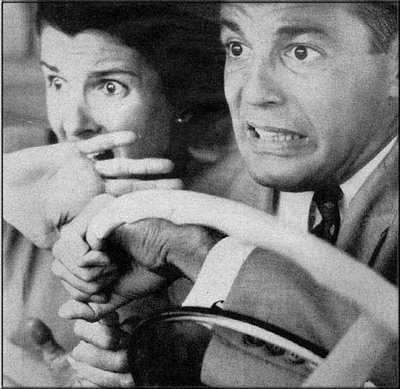Office Blues: 4 Job Situations that Can Lead to a Car Loan Rejection

When a lender denies someone’s application for a car loan, it’s common to put the blame on poor credit. But that’s not the only cause. Your job situation might also prevent you from getting approved for an auto loan.
Your job status gives lenders hints on how well you can deal with a loan, even though it’s not the only factor. And it’s no secret that some job situations are less ideal than others. With that said, there are four job situations that could lead to car loan disapproval.
Insufficient income
Your income usually doesn’t affect your approval for a car loan too much. But that doesn’t mean lenders never consider it. Based on the amount and the length of your car loan term, a lender may deny you a loan because your income is too low.
They will assume that your income could lead to a struggle in making payments and decline you as a result. The purpose of this is to reduce the risk on their end. But it’s for your own good as well since it can prevent you from taking on debt you may not be able to handle.
The fix: The best thing you can do if your income is too low, is to apply for a smaller loan. You can also have someone cosign for your loan, as long as they make enough money and have a good credit score.
Switching Jobs Too Frequently

Younger adults, especially those in their 20s and early 30s, have a tendency for switching jobs. This practice can interfere with car loan approvals. If you’re in this age range, you may know friends who do this. Or maybe you fall into the “frequent job hopper” category yourself.
Switching jobs won’t hurt you if you plan the move well, but lenders can deny your car loan application if you have an unstable job history. They want to see a consistent record. Such a record implies that you’re more likely to earn a consistent salary that will allow you to make regular payments towards your loan.
The fix: The lesson here is to keep a job for as long as possible, unless you have a good reason for leaving. By sticking with one job for a while, lenders won’t raise their eyebrows when reviewing your credit application. And as a side benefit, future employers won’t question your resume if you knock on their doors for a new job.
Applying for a Car Loan while on Probation
If you’re trying to apply for a car loan while on probation, you might have some trouble getting approved. To a lender, your probation means you have not yet been guaranteed the job. They don’t want you to lose your job after the three months and then owe them money for a loan.
Typically, lenders approve employees who have been with their employer for at least three months – the duration of probation – or more.
The fix: This one is simple – wait until your probation period is over. Once you are a permanent employee, you can proceed with your car loan application.
Self-Employed But Need a Car Loan

Owning a business or practice isn’t a limiting factor within itself. But the process of applying for a car loan with a self-employed status might come with a few challenges.
When dealing with self-employed people, car loan companies have to work with stated income – what the business owner claims to make. What they need to see is the opposite – verified income, what your company actually makes.
You may run a credible business and earn a steady income, but a lender may not to grant you a loan if they don’t have the real numbers behind your business.
The fix: Give lenders proof of your business’ finances. You can give them documents that confirm your income such as tax returns and financial statements. You can also show them your business and personal credit score. As a self-employed person, this info will raise your chances of getting your car loan approved.
Loan Disapproval: More than Just a Number
Despite what we’ve mentioned above, a “good” job (whatever that means) won’t guarantee your car loan approval. Your debts, payment history and all the other aspects of your credit profile play a part. In combination with the right job situation, you’ll want to work to avoid the following:
- Late & missed payments – Bad credit often comes from late or missed payments. When this turns into a habit, your credit score will take a serious hit. Even worse, you can expect to run into major problems with credit agencies.
- Bankruptcies – A recent bankruptcy on your record can make it very tough to get approved for a car loan. Creditors and lenders will see you as a high risk client. With that said, there are loans available for those who declared bankruptcy, so still have hope if you need financing but have a bankruptcy on record.
- Too Many Inquiries – Here’s another practice to avoid – applying for too many loans at once. Applying with a few banks over a short period of few weeks won’t hurt your credit – it’s often counted as one inquiry (known as rate shopping). But if you’re applying for months at a time, all of those of hard inquiries will take points off your credit score. So avoid this as much as you can!
There’s More to an Approval than a Score
It’s common for people to think that a good credit score is all that’s need to get a approved for a car loan. But it goes much farther than that. Your job status can help you get approved for a car loan or stand in your way, and it’s important to know this before you apply.
If you’re looking to apply for an auto loan, contact us right away. We’ll help you find a vehicle that fits your monthly budget and job needs.






